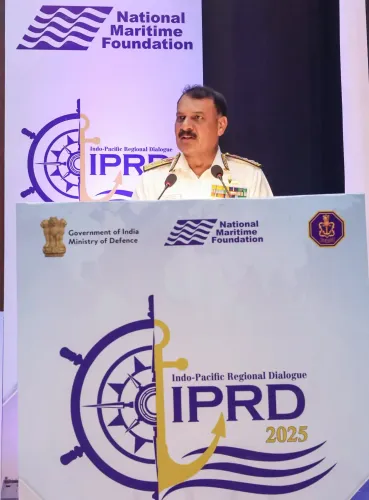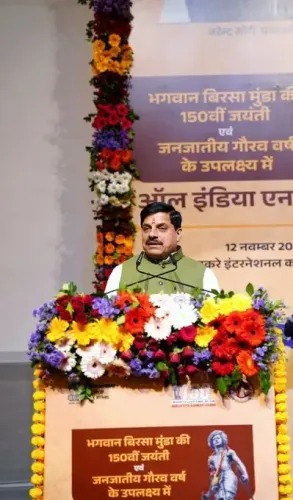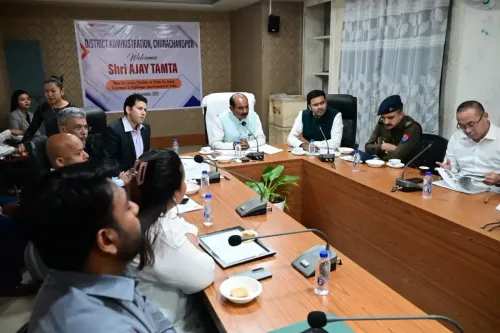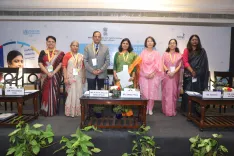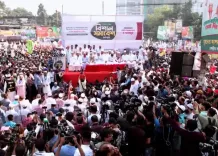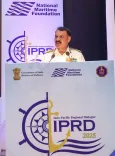Why Did Jairam Ramesh Criticize the Government's Delegation Selection?
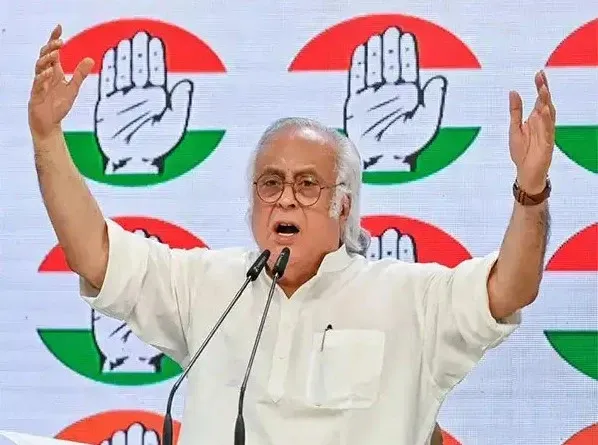
Synopsis
Key Takeaways
- Jairam Ramesh criticized the government for its selection process.
- Only one Congress leader was included in the foreign delegation.
- The Congress party demands an all-party meeting on national security.
- Ramesh emphasized historical political unity during crisis situations.
- Political gamesmanship can undermine national security efforts.
New Delhi, May 18 (NationPress) Congress General Secretary Jairam Ramesh has publicly criticized the Central government led by Modi for what he describes as "complete insincerity" and political maneuvering on significant national matters. In a media statement released on Saturday, he expressed disappointment that only one out of four Congress leaders proposed for the government's foreign delegations was selected.
These delegations aim to articulate India's position regarding terrorism originating from Pakistan.
On the morning of May 16, the Central government requested names of four Congress leaders or MPs to represent the party in these delegations.
However, Ramesh emphasized that the names were submitted in writing by Rahul Gandhi, Leader of the Opposition in the Lok Sabha, to Kiren Rijiju, the Union Parliamentary Affairs Minister, by noon on the same day.
In a post on X, Ramesh stated: "On the morning of May 16, the Modi government asked for four names of Congress MPs/leaders to represent the party in the delegations being sent abroad to explain India’s stance on terrorism from Pakistan. These four names were conveyed in writing by the LoP in the Lok Sabha to the Minister of Parliamentary Affairs by 12 noon on May 16th itself."
He lamented that late on May 17, the comprehensive list of delegation members was released, revealing that only one of the four names proposed by the INC was included. This situation, he argued, demonstrates the government's lack of sincerity and its tendency to engage in political games concerning critical national issues.
Ramesh remarked, "The four notable Congress MPs/leaders included at the behest of the Modi government will, of course, participate in the delegations and contribute. The INC will not stoop to the low tactics of the PM and the BJP. We will uphold the best traditions of Parliamentary democracy and will not engage in partisan politics regarding national security, as the BJP does. We wish these delegations great success but stress that they should not distract from our call for all-party meetings led by the PM and a special session of Parliament to reaffirm the resolution adopted on February 22, 1994, while also considering subsequent developments.
A controversy emerged earlier on Saturday when the government announced that Shashi Tharoor, a Congress leader, was among seven MPs who would represent India at international forums to brief world leaders on Operation Sindoor.
However, Tharoor's name was not included in the four names Congress had submitted to the government.
"We were asked for names and expected that those we provided would be included. However, the PIB press release took us by surprise. I cannot predict what will happen now. It is dishonest for the government to ask for four names, present four names, and then announce a different one," Ramesh commented.
Ramesh also revealed a letter from Rahul Gandhi to Kiren Rijiju, the Union Parliamentary Affairs Minister, sent on May 16 at 12:30 PM, which stated, "Dear Shri Kiren Rijiju, I am following up on our conversation regarding the delegation for foreign countries. After discussing with Kharge ji, I am sending you four names: Anand Sharma, Gaurav Gogoi, Raja Barar, and Naseer Hussain."
He underlined the significance of party loyalty, stating, "All who are in the Congress belong to Congress; there is a profound difference between being in Congress and being of Congress."
The Congress party had previously supported the government’s diplomatic initiatives but was taken aback when the names were announced without their approval.
"From April 22 until now, we have been demanding an all-party meeting. Two meetings were held, but they were merely formalities; the PM did not attend. The Leader of Opposition in both the Lok Sabha and Rajya Sabha wrote requesting a special session to facilitate a detailed discussion, aiming to present our collective determination to the nation and the world. The PM did not respond to this, and suddenly we learned that an all-party delegation would be formed. This indicates a shift in the government's narrative. We welcomed this move, expressing our willingness to assist in this diplomatic effort, yet the Minister’s actions—requesting names and then announcing them unilaterally—are not honest; a game is being played here," Ramesh alleged.
He recalled how former Prime Minister Indira Gandhi managed diplomatic delegations during the 1971 war, underscoring the necessity of unified political support.
"In 1971, Indira Gandhi dispatched delegations, stating, 'In May, the delegation was sent. She called Jai Prakash Narayan and said, 'You should go.' Indira herself visited multiple countries including Russia, Belgium, Austria, France, Germany, and America, asserting to then US President Richard Nixon that 'I will do whatever is in India’s interest,'" Ramesh recounted.
He reiterated his call for an all-party meeting and a parliamentary session to deliberate on the government's position regarding Pakistan.
"Even today, we demand a call for an all-party meeting, a parliamentary session, and a reiteration of the resolution passed on February 22, 1994. Discussions should focus on the government's stance towards Pakistan and its relationship with America. Why is the PM avoiding the all-party meeting? Why is he evading Parliament?" Jairam Ramesh questioned.
In a previous statement, Ramesh mentioned that the Congress party had submitted four names for the delegation.
The unexpected inclusion of Shashi Tharoor by Union Minister Kiren Rijiju raised eyebrows, particularly since Tharoor had also accepted the government’s proposal.

